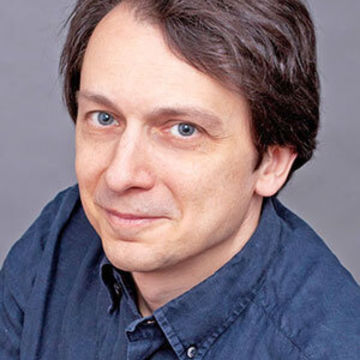Stefano Fusi - The geometry of abstraction in human and non-human primates
290 Jane Stanford Way, Stanford, CA 94305
John A. and Cynthia Fry Gunn Rotunda, E241

The geometry of abstraction in human and non-human primates
Abstract
Neurons in the mammalian brain often exhibit complex, non-linear responses to multiple task variables (mixed selectivity). Despite the diversity of these responses, which are seemingly disorganized, it is often possible to observe an interesting structure in the representational geometry: task-relevant variables are encoded in approximately orthogonal subspaces in the neural activity space. This encoding is a signature of low dimensional disentangled representations, it is typically the result of a process of abstraction and allows linear readouts to generalize to novel situations readily. We show that these representations are observed in cognitive areas of the brain of human and non-human primates performing complex context-dependent tasks. In humans, it is possible to observe the formation of these representations in the hippocampus. These studies are the result of a collaboration with the groups of Daniel Salzman (Columbia) and Ueli Rutishauser (Cedars Sinai/Caltech).
Stefano Fusi
Columbia University
Stefano Fusi was born in Florence, Italy, and graduated in 1992 from the Sapienza University of Rome with a degree in physics. After his degree, he obtained a researcher position at the Italian National Institute for Nuclear Physics in Rome and started to work in the field of theoretical neuroscience. In 1999, he received a Ph.D. in physics from the Hebrew University of Jerusalem, Israel, and moved to the University of Bern, Switzerland, as a postdoctoral fellow. After visiting Brandeis University as a postdoctoral fellow in 2003, in 2005 he was awarded a professorial fellowship by the Swiss National Science Foundation and became an assistant professor at the Swiss Federal Institute of Technology in Zurich (ETHZ), Switzerland. In 2009, he joined the Department of Neuroscience at Columbia University where he is a Professor of Neuroscience at the Center for Theoretical Neuroscience.
About the Wu Tsai Neuro MBCT Seminar Series
The Stanford Center for Mind, Brain, Computation and Technology Seminars (MBCT) explores ways in which computational and technical approaches are being used to advance the frontiers of neuroscience. It features speakers from other institutions, Stanford faculty and senior training program trainees.
The MBCT Seminar Series is only offered in person.